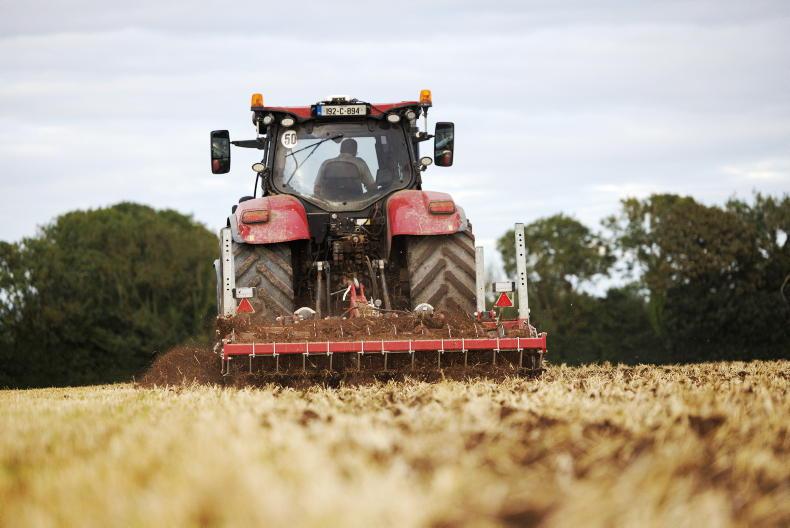Workshops covering optimising production, pesticides and environmental credentials will all be covered at the 2025 Teagasc Tillage Conference.
The annual Teagasc conference will take place on Wednesday, 29 January in the Lyrath Conference Centre, Kilkenny with thematic sessions and workshops organised for the day.
Attendees will hear about the latest research on the capacity of tillage soils to capture carbon and the positive impact of cover cropping on water quality, in monitored agricultural catchments.
In addition, the impact of rotation to lessen the risk of mycotoxins in oats, the use of pea and bean flour in food processing, and pesticide use reduction will all be presented as well.
Speaking in advance of the conference, Dr Ewen Mullins, head of the Teagasc crops research department, said the practical, interactive workshops will allow attendees to participate in sessions of particular interest to them.
“The session is designed to promote more engagement and discussion between attendees and panelists on topics including disease control and weed management decisions, and how best to exploit the environmental credentials of the tillage sector.
“An additional workshop will focus on the potential learnings that can be attained by farmers from on-farm field evaluations of new products/processes, but equally the trade-offs that can occur in the absence of a robust evaluation method.”
Workshops
Attendees will have the opportunity to register for up to 3 workshops from the listed four, with each hosting a panel with research, farmer/industry and advisory input. Workshops included are:
On-farm field evaluations to optimise productionWeed ClinicEnvironmental Credentials of tillage sector and role of Ag-NavDisease control decisions for 2025This is a physical meeting only and pre-registration by all attendees is required to confirm attendance. Registration is open until 11.59pm on 27 January.
To register and for more details, click here.
Read more
Tillage Podcast: carbon payments, beans and conferences
70% of farmers expect tillage area to remain stable
Tillage management: beans, weather and fertiliser
Workshops covering optimising production, pesticides and environmental credentials will all be covered at the 2025 Teagasc Tillage Conference.
The annual Teagasc conference will take place on Wednesday, 29 January in the Lyrath Conference Centre, Kilkenny with thematic sessions and workshops organised for the day.
Attendees will hear about the latest research on the capacity of tillage soils to capture carbon and the positive impact of cover cropping on water quality, in monitored agricultural catchments.
In addition, the impact of rotation to lessen the risk of mycotoxins in oats, the use of pea and bean flour in food processing, and pesticide use reduction will all be presented as well.
Speaking in advance of the conference, Dr Ewen Mullins, head of the Teagasc crops research department, said the practical, interactive workshops will allow attendees to participate in sessions of particular interest to them.
“The session is designed to promote more engagement and discussion between attendees and panelists on topics including disease control and weed management decisions, and how best to exploit the environmental credentials of the tillage sector.
“An additional workshop will focus on the potential learnings that can be attained by farmers from on-farm field evaluations of new products/processes, but equally the trade-offs that can occur in the absence of a robust evaluation method.”
Workshops
Attendees will have the opportunity to register for up to 3 workshops from the listed four, with each hosting a panel with research, farmer/industry and advisory input. Workshops included are:
On-farm field evaluations to optimise productionWeed ClinicEnvironmental Credentials of tillage sector and role of Ag-NavDisease control decisions for 2025This is a physical meeting only and pre-registration by all attendees is required to confirm attendance. Registration is open until 11.59pm on 27 January.
To register and for more details, click here.
Read more
Tillage Podcast: carbon payments, beans and conferences
70% of farmers expect tillage area to remain stable
Tillage management: beans, weather and fertiliser







 This is a subscriber-only article
This is a subscriber-only article










SHARING OPTIONS: